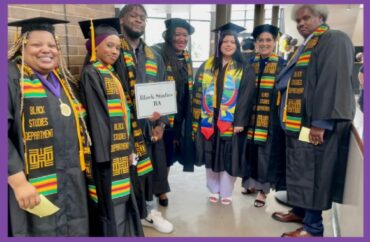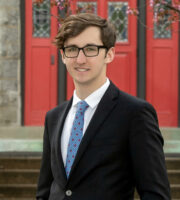
Department hosts ‘Queering Black History Month’ panel, offers ‘Performing Black Womanhood’ class
City College of New York is expanding its Black Studies Department, including a new bachelor’s degree, office suite, and revamped course structure, to train students to become “scholar activists.”
One outside scholar told The College Fix that many such programs today tend to be focused on “activism” rather than education.
The public college re-established its Black Studies Department on July 1, 2024, after dismantling the department in 1996, according to its website. Then, in February, the Board of Trustees voted to create a new Bachelor of Arts degree in Black Studies.
Department Chair Jervette Ward said the faculty wants to equip students to become “engaged scholar activists,” according to the department’s most recent annual report.
“In Black Studies, we connect to freedom struggles globally,” Ward wrote, pointing to activism in the Civil Rights Movement and Black Lives Matter.
“… over and over, our students have held a mirror up to ourselves and shown that we must stand with those who are harmed and abused. In doing so, student activists, have stood for something larger than themselves,” Ward wrote.
The report also listed the department’s goals for the current school year. They include: “Establishing the New Black Studies Department Office Suite in Historic Shepard Hall,” “Hiring new Tenure-Line Faculty to meet the required number of faculty lines for a Department,” and “Revamping the … course structure.”
The College Fix sent several emails to Ward over the past two weeks, asking about the department’s expansion and any potential worries about its future due to President Donald Trump’s DEI-related cuts, but she did not respond.
The college media relations team initially replied to The Fix‘s request for comment by promising someone would respond, but no one did.
Meanwhile, Eric Kaufmann, professor at Birkbeck College and member of Color Us United, told The Fix over email that “Black Studies is, on its face, a worthy field of study,” but its current implementation tends toward “scholar-activism.” Color Us United is an organization that pushes back against racial divisiveness in the U.S.
“Black Studies departments were formed in the late 1960s out of the Black Power movement. Sit-ins, protests, emotional blackmail and political pressure helped found them, while student-led demand or intellectual curiosity were secondary,” Kaufmann said.
He told The Fix: “The field continues its tradition of scholar-activism, in which only a limited set of questions are asked, and only a narrow range of answers permitted. This is activism, not scholarship, and should not be funded by taxpayers.”
The institution is a public college, funding by tax dollars.
For the spring term, the department highlighted courses on its website such as “The Black Revolution,” “African Heritage & the Afro-American Experience,” and “Performing Black Womanhood in the United States.”
“The Black Revolution” offers a “survey of the forces shaping the current unrest in the worldwide Black community, including movements that project the changed attitude toward being Black for Blacks and non-Blacks.”
The description continues, “The course highlights both the positive and negative reactions resulting from the new self-pride on the part of Black people.”
On the curriculum page, other courses include “Racism an the American Legal System,” “Social Inequality: Hip Hop,” and “Malcolm X: His Life, Leadership, and Legacy.”
The class “Racism an the American Legal System” discusses “[c]ontemporary legal institutions, their intrinsic race and class biases, the peculiar development and entanglement of the institution of slavery and American jurisprudence, and the effect of the racist application of the American legal system on every facet of the Black experience.”
In February, the department also co-hosted a “Queering Black History Month” panel discussion, “Souls of Queer Black Folk.”
When programs are focused on activism instead of education, Kaufmann told The Fix it becomes an issue.
“Ending racism is a laudable goal for an NGO or political pressure group. While this can be part of the academic mission, an academic department must be primarily committed to the pursuit of truth and open debate,” he said.
“Yet these departments tend to gravitate to the most extreme and unscientific theoretical positions, notably critical race theory, which is unfalsifiable and at times little different from a racial blood libel,” he said.
“It arguably exacerbates racial tensions while overlooking key sources of racial disadvantage, such as the public school system, depolicing and the decline of the family,” Kaufmann told The Fix.
MORE: UMinn ‘intersectional medieval art’ class explores ‘transgender saints’
IMAGE CAPTION AND CREDIT: Students in graduation robes hold a ‘Black Studies’ sign. CCNY Black Studies Department 2023-2024 annual report
Like The College Fix on Facebook / Follow us on Twitter






Please join the conversation about our stories on Facebook, Twitter, Instagram, Reddit, MeWe, Rumble, Gab, Minds and Gettr.